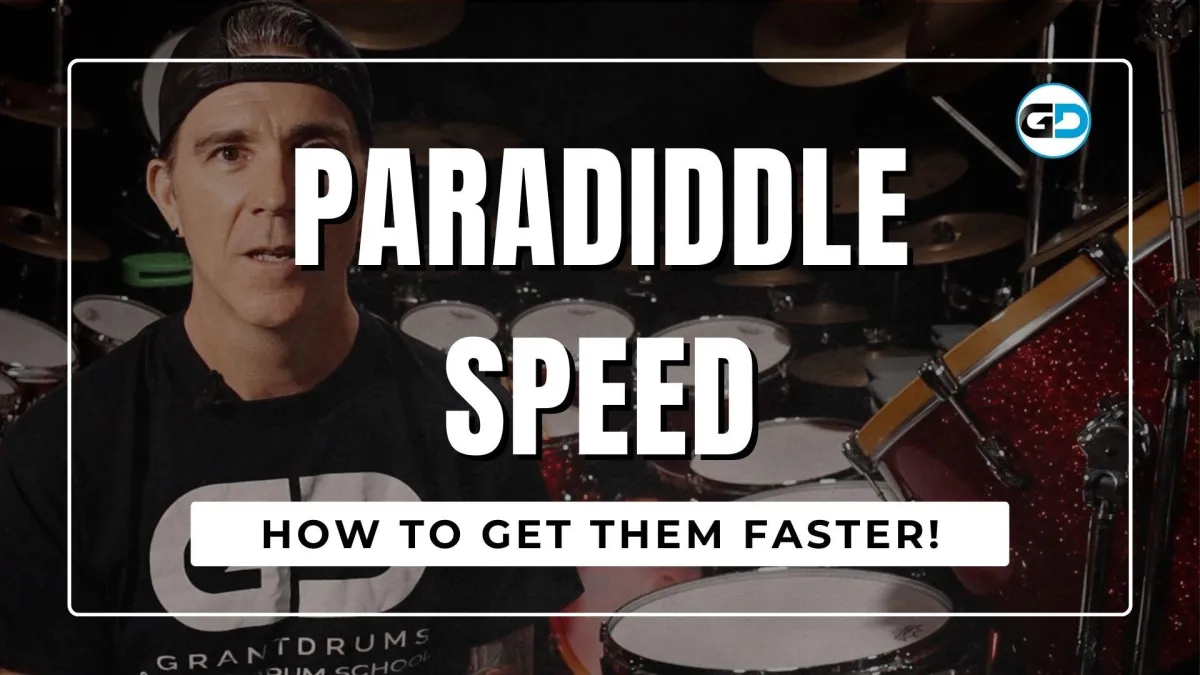ACADEMY MEMBERS
LEARNING TIME
with


Conquer Single Paradiddle Speed with This Practice Hack
Struggling to push your single paradiddles to the next level? This lesson unveils a powerful practice technique to break through that speed barrier.
The Challenge:
Many drummers find that paradiddles become sluggish when aiming for faster tempos. The key lies in mastering the "diddle" portion of the paradiddle.
The Culprit:
Often, the culprit behind slow paradiddles is a weakness in playing doubles – specifically, light and quiet doubles.While strong doubles are valuable, the focus here is on a controlled, ghost-note approach. Many drummers neglect practicing doubles at this softer dynamic.
The Solution:
Here's a practice strategy to address this:
Isolating the Doubles: Practice the double stroke portion of the paradiddle in isolation. Play very light, ghost notes, focusing on a smooth and quiet execution. An example would be accenting the single notes on a paradiddle pattern, then practicing just the ghost notes in between.
Engaging the Bounce: As you increase the speed of your doubles, transition to a bouncing technique rather than relying solely on wrist action. This will allow for faster and more efficient execution.
Single-Hand Focus: Isolate each hand and practice the double stroke pattern independently. This allows you to concentrate on proper technique and develop evenness between your hands.
Putting It All Together:
Once you've mastered playing light doubles and engaging the bounce with each hand, reassemble the complete paradiddle pattern. You'll find that your speed and control have significantly improved!
Beyond Paradiddles:
This technique isn't just for paradiddles! Isolating and refining weaker elements within a complex pattern applies to many drumming skills.
Practice Makes Progress:
Remember, consistent practice with focused attention is key. By incorporating these steps, you'll unlock new levels of speed and fluidity in your single paradiddles.
Happy Drumming!
This is just one example of how dedicated practice can elevate your drumming.We've got tons more resources to help you on your drumming journey!
Sick of losing focus and trying every drum exercise you can find on YouTube?
It's time for the...


FREE DRUM CHART
CHOP CHOP
Drum Chart
22 Time Signature Changes in 59 Seconds!
Enter your details and get the chart to your inbox in minutes!
You will receive your Free PDF Chart to your inbox. Please check your spam filters if you can't see it.
Your email will come from help@mail.grantdrums.com



